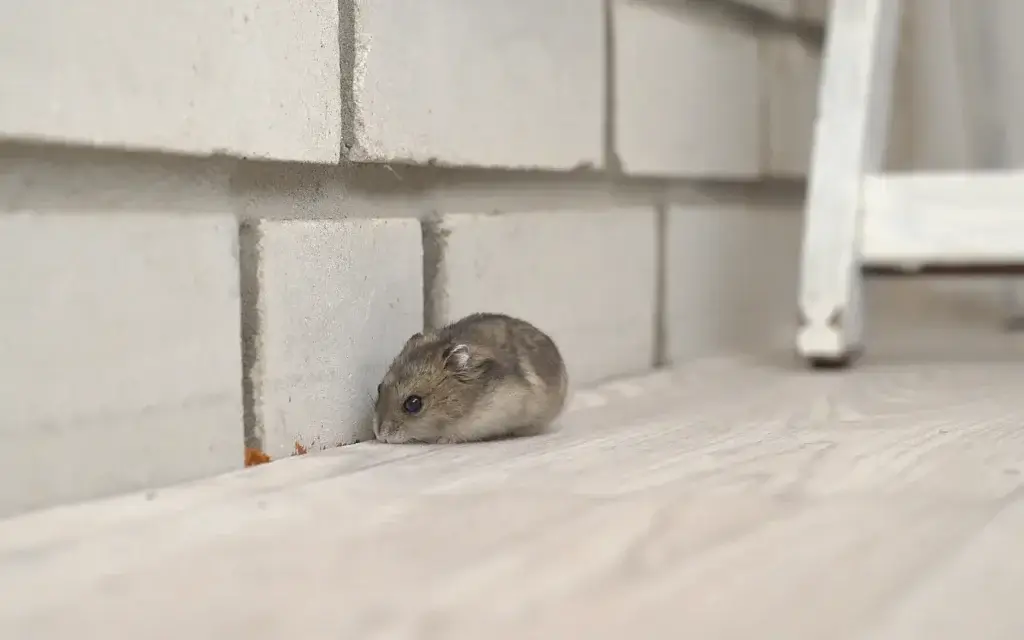
6 Helpful Mouse Prevention Tips for Homeowners in North Carolina
Are you dealing with mice in your home? Perhaps you've just discovered a nest of mice in your attic. Maybe you've seen tiny brown, rice-sized droppings in your kitchen drawers. Or maybe you are losing sleep because of maddening scritch-scratching, scampering noises above your head or inside the walls of your bedroom. Regardless, it's time to take action with these mouse prevention tips from our expert exterminators in North Carolina.

Table of Contents
Why Mouse Prevention Matters
Mice may appear small and harmless, but when it comes to your home, they can wreak havoc far beyond their tiny size. That's why mouse prevention matters more than you might think. These resilient rodents are not only a nuisance but also pose significant health and structural risks. In this article, we'll delve into the reasons why mouse prevention is essential for every homeowner.
What Damage Can Mice Do Outdoors?
Mice have a gnawing habit that's more than just a nuisance—it can be costly. They can chew through electrical wires, insulation, and structural components of your home, potentially leading to electrical fires and extensive damage. Needless to say, mice living on your property can cause problems.
They can nest in vehicles, causing significant damage over time. In fact, each year thousands of vehicles are damaged because of the nesting behaviors of rodents. Mice can also cause damage to fruit trees, gardens, or areas where animal feed is stored.
Learn more about what sort of damage rodents can cause to homes in North Carolina.
What Damage Can Mice Do Inside?
Once inside, rodents can cause a whole host of headaches! Evidence of their constant chewing will start to show up in personal belongings, such as clothing, books, and furniture. Plus, mouse droppings and urine can degrade your home's indoor air quality and lead to unpleasant odors.
The following is a partial list of the problems rodents can bring with them when they get inside structures:
- Parasites: Rodents are known for carrying parasites with them. Mites, fleas and ticks are regular hitchhikers on rodents. If rodents are getting into your home, you may have a host of secondary issues to deal with: a flea infestation or the threat of Lyme disease, to name a few.
- Diseases: Rodents love to crawl around in filthy places. When they are roaming around on your kitchen counters at midnight, they could have just come in from foraging in the nearby sewer or dumpster where they came in contact with all sorts of dead, decaying material and are coated with harmful bacteria. Some diseases rodents are known to carry include hemorrhagic fever with renal syndrome, leptospirosis, lymphocytic choriomeningitis, rat-bite fever, salmonellosis, and tularemia.
- Damage: The incisors of mice never stop growing. This means these animals never stop chewing to file those teeth down.
Not sure how mice are getting into your home? Learn about how mice get into your house in North Carolina.
6 DIY Mouse Prevention Tips
- Remove attractants from your property: Seal up outside garbage containers. This will keep smells in, and rodents out. Without covers on your trash, this will not only invite animals in to make a mess, but other pests will be drawn in as well.
- Remove hiding places: If your yard has items such as brush piles, leaf piles, discarded items, construction materials, or anything else rodents can use for a hiding place, then they will feel right at home coming in close to your house.
- Eliminate water sources. Fix leaky spigots, hoses or gutter systems, to keep things as dry as possible. If you have bird feeders, try keeping them away from your home. If there are areas where water pools because of compacted ground, try loosening the soil so the water soaks in after it rains.
- Remove overgrowth of weeds and trim back vegetation from around your perimeter: This will not only help to dry things out but it will further reduce hiding places, as well as eliminate "bridges" from the ground to the exterior walls of your home.
- Seal your foundation and outer walls: It doesn't take much of a gap for a mouse to squeeze into a structure (a hole the size of a dime will do nicely). Carefully inspect the outside of your home for gaps, cracks and holes, and seal them up. Pay close attention to areas that may be softened by water damage as well as around items that pass through your structure.
- Keep the inside of your home free of food and water sources: If mice or rats find a way in, but they don't find anything to eat inside your home, they will be unlikely to stay. Make sure to keep food stored in tightly sealed containers that rodents cannot chew through.
Final Word: Mouse Prevention Tips for NC Homeowners
If you have been noticing rodents around your home, there is no time to waste partnering with a professional pest control company. If you are seeing rodents or the signs of rodents inside your home, there is even less time to waste!
When you contact A-1 Pest Control for help with rodents, we will send one of our certified pest control technicians to survey your property. After evaluating, we will recommend a treatment plan and provide you with a quote. From there, we will implement a rodent control plan that will effectively eliminate existing rodent activity, and stop them from returning. We also offer one-time rodent treatments, if that's what you need. You don't have to live with the threats of rodents in your home, reach out to A-1 today.
